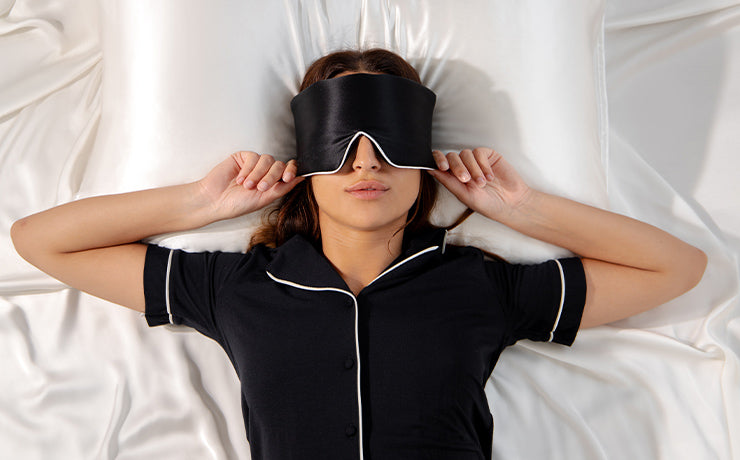How to manage your sleep as a shift worker
As dusk settles and the night's creatures begin their activities, there is another, often overlooked, nocturnal being setting out into the darkness just as many of us are settling in for the evening — the diligent shift worker.
A shift worker operates outside the conventional 9-5 hours, finding their moments of rest during the daylight hours when the world is most awake. This can be quite challenging. We're all too familiar with the struggle of securing adequate sleep, but for those on shift work, achieving restful sleep can be an even more daunting task.
For shift workers reading this, it might seem like we're stating the obvious, but rest assured, our intention is to share a few helpful suggestions and tips that might make falling into a deep, restful sleep a bit easier for you.
Keeping it consistent
sleep routine hinges on consistency in your sleep schedule. For night shift workers, this means maintaining uniform sleep and wake times is crucial — including on your days off. If your schedule requires you to wake at 5 p.m. and sleep at 8 a.m., it's vital to stick to this rhythm throughout your entire night shift cycle.
Setting the mood (and some boundaries)
Maintaining your sleep schedule might seem feasible if you're dwelling solo in an environment akin to a dark, tranquil cave. However, the reality of living with children, roommates, or a partner can complicate matters significantly. Hence, it's crucial to establish firm boundaries regarding interruptions during your rest hours — ensuring those around you understand that minor inconveniences do not constitute emergencies.
With these boundaries in place, focus next on creating an ideal sleeping environment by minimizing light and noise intrusion. Consider investing in blackout curtains, sleep masks, earplugs, white noise devices, soothing sleep sprays, and comfortable nightwear. Also, remember to switch off your mobile phone to avoid unnecessary disturbances, unless you're required to be on call. Paying attention to these details can profoundly enhance the quality of your rest.
Relaxation
Achieving a state of maximum relaxation before heading to bed significantly simplifies the process of falling asleep. Traditional relaxation techniques such as taking a warm bath, engaging in yoga, practicing meditation, doing some gentle stretching, reading, or listening to an audiobook all contribute to winding down. Allocating some personal time for relaxation before sleep is equally beneficial. Just as individuals working standard 9-5 hours need time to decompress after their workday, shift workers should also dedicate moments to unwind. However, one activity to steer clear of is consuming alcohol. While it may seem to aid in falling asleep quicker, the process of metabolizing alcohol can interrupt your sleep, robbing you of precious restorative hours.
Napping
Many shift workers find success with a divided sleep approach, opting for a short nap after arriving home followed by a longer sleep period just before their next shift begins.
But if you need more concrete proof that naps can be good for you…this NASA funded experiment came to the same ‘naps are great’ conclusion.
This study, conducted by the University of Pennsylvania Medical School, investigated the efficacy of various sleep patterns, including split sleep, among astronauts and mission control personnel. The participants were divided into groups following different sleep regimes, ranging from split sleep schedules to uninterrupted daytime sleep, alongside a control group adhering to a conventional eight-hour nightly sleep pattern. The findings revealed no significant differences in alertness across the groups, provided the total amount of sleep was adequate. Thus, the takeaway is clear: embracing naps can be a strategic move for shift workers.
Staying awake on the job
If, despite trying out all the suggested tips, you still find it challenging to stay alert before your shift, here are some practical strategies to help keep you awake, without resorting to using matchsticks to prop open your eyes.
Firstly, regulate your caffeine consumption. It might seem illogical, but although a potent espresso can kickstart your shift, consuming caffeine close to your bedtime can make falling asleep difficult.
Next, stimulate your heart rate to naturally increase your energy levels. Consider taking a quick walk, engaging in a brief online workout, or practicing some chair yoga. Physical activity can significantly enhance your alertness.
Lastly, consider taking a short nap of 10-20 minutes. This duration is optimal as it prevents you from falling into a deep sleep, making it easier to wake up without feeling groggy. Additionally, the concept of a 'coffee nap'—drinking a cup of coffee before a 20-minute nap so the caffeine kicks in as you wake up—can provide an extra energy boost.






